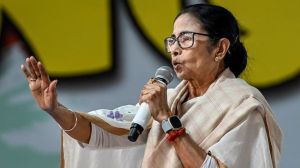By the bullet
In Bihar,spotlight has shifted from caste armies like Ranbir Sena to reinvention of the state
In Bihar,spotlight has shifted from caste armies like Ranbir Sena to reinvention of the state
Last week,Barmeshwar Singh,also known as Mukhiya,died in the manner in which he lived. Guerrilla leader of Bihars Ranbir Sena,a private militia of Brahmins and Bhumihars that killed and terrorised Dalits,Singh was shot dead in Bhojpur.
Caste-based senas started in the late 1970s,as a reaction to the strength of Left extremist groups. Upper-caste warriors of the Brahmarshi Sena,the Sunlight Sena,the Savarna Liberation Force,and the Bhoomi Sena of the Kurmis and the Lorok Sena of the Yadavs roamed the state. But none was as ferociously organised as the Ranbir Sena under Barmeshwar Singh,a former panchayat head of Khopira,in Bhojpur district. It has been accused of mass killings of Dalits,in Lakshman Bathe,Mianpur,Bathani Tola and Shankarbigha,among others,and was not known to spare women or children. In many cases,the outfit also took credit for the atrocities. It was also said to be furtively backed by forces within the political establishment,police and administration. After the Narayanpur massacre under an RJD government,presidents rule was imposed in Bihar by the then BJP government at the Centre. However,the Ranbir Sena splintered in the 90s,because of factionalism and because it was eventually overtaken and made redundant by electoral politics. Its other big leader,Sunil Pandey,became an independent MLA. Armed warfare was no longer necessary to protect the material interests of various castes,who now focused their energies on capture of state power.
Barmeshwar Singhs killing is a reminder of Bihars past,of avenging caste armies and a receding or complicit state. In the two decades since,the assertion of caste has changed. In the state of raging inequalities,the spotlight has shifted from violent domination and resistance to the competing mobilisations of previously neglected groups by political parties. The story of a changing Bihar is made up of these groups engagement with a reinvented state and their democratic aspiration to occupy it.
- 01
- 02
- 03
- 04
- 05































